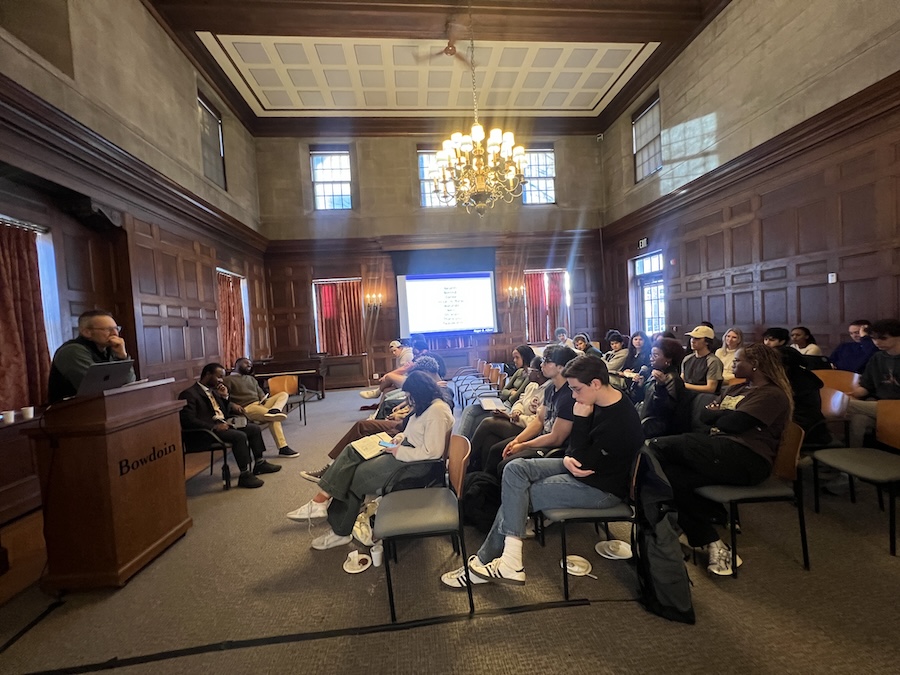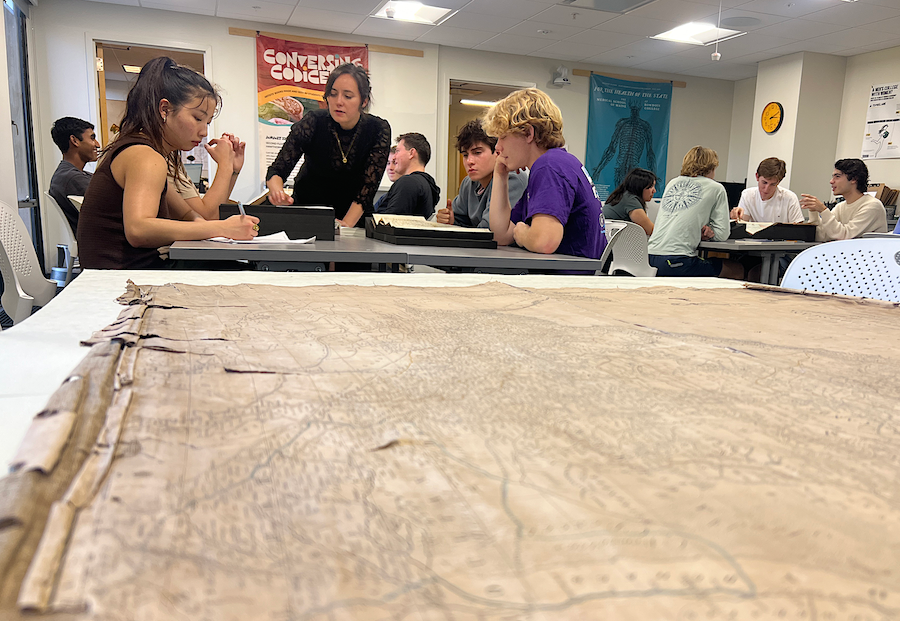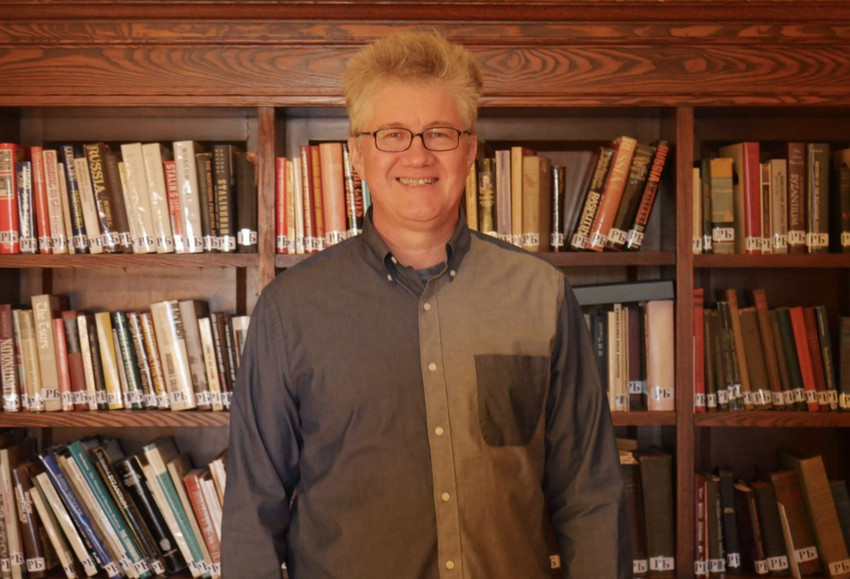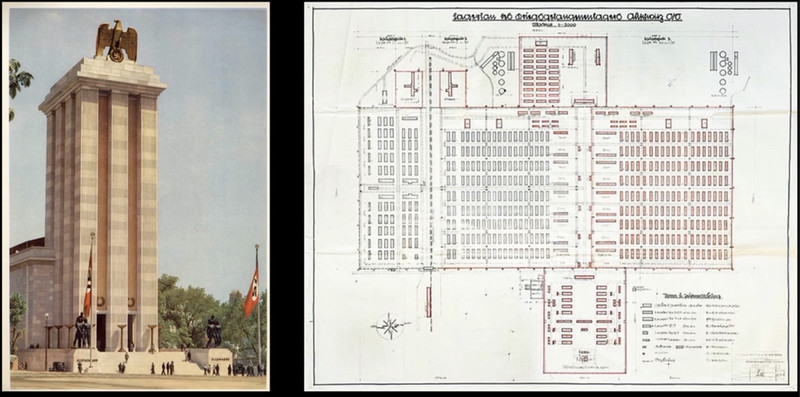Bowdoin's Patrick Rael Reflects on the Enduring Importance of Juneteenth
By Bowdoin
Juneteenth recalls the day—June 19, 1865—when the U.S. Army declared that those enslaved in Texas were now free. Abraham Lincoln’s Emancipation Proclamation began this work on January 1, 1863, asserting that all parts of the country then under rebellion would be “henceforth, and forever free.” It took armies to make this promise a reality, though—armies comprised of black and white Union troops, such as those in Texas that shielded the freed people from the wrath of those who had once claimed to own them. Even so, throughout the South some African Americans did not learn of their emancipation until months, and sometimes years, after their chains had been legally abolished.
Juneteenth thus stands as a telling reminder of African Americans’ long struggle to wrest liberty from a country predicated on principles it has always denied black people. That struggle reaches back to the earliest days of American independence, when African Americans petitioned the new states to grant them the same rights they were themselves dying for on the battlefields of Saratoga and Yorktown. As a group of enslaved African Americans wrote to the Massachusetts legislature in the midst of the American Revolution, “Every principle from which America has acted in the course of their unhappy difficulties with Great Britain pleads stronger than a thousand arguments in favor of your petitioners.”
From the very founding of the nation, then, African Americans have authored their own history, replete with an alternative pantheon of heroes. They commemorated contributions by African Americans to the cause of liberty—from Crispus Attucks, the fugitive from slavery who became the nation’s first martyr to liberty from Britain during the Boston Massacre of 1770, to Robert Smalls, the enslaved ship pilot who captured a Confederate supply ship and delivered it to Union hands in March 1861.
They also crafted their own tradition of public commemorations—a kind of alternative to a calendar of civic remembrances that excluded them. In the early decades of the nineteenth century, free African Americans in the North participated in a range of public events, such as New Year’s Day celebrations. Parading in companies along with other groups, they came up against white mobs who rioted, seeking to deny them not only the streets of American cities but the civic equality that went with it. Wrote one black Philadelphian after a particularly vicious race riot in 1842, “I am convinced of our utter and complete nothingness in public estimation.”
"Alas that Douglass's words seem too true today, when African Americans—along with others of marginal identities and their allies—are once again engaged in a struggle for basic human rights that should be beyond debate in a society founded on universal human liberty." Patrick Rael
Denied equal participation in the American civic calendar, African Americans created their own celebrations in response. Many held July 5 celebrations to protest an Independence Day that denied them the very rights America was founded upon. “This Fourth of July is yours, not mine,” Frederick Douglass reminded a white audience one July 4. “You may rejoice, I must mourn.” When Great Britain abolished slavery in its West Indian colonies in 1834, African Americans in the United States began commemorating August 1—the day the edict took effect. Parades down city streets, large picnics, and public speeches featured prominently on these days, offering moments for reinforcing the historical memory of their struggles, and steeling themselves for those they confronted in their own day.
After the Civil War, Juneteenth became an important addition to this alternative African American civic calendar. Honored by the national government in the early days of freedom, Juneteenth weathered grim years of Jim Crow segregation, disenfranchisement, and lynching. It became a folk celebration honoring the sacrifices of a long history of liberty-seeking, stretching from the words of revolutionary poet Phillis Wheatley to the deeds of fugitive rescuer and Union spy Harriet Tubman.
Now, once again, an African American freedom movement is revivifying Juneteenth, which is now officially honored in forty-seven of fifty states and the District of Columbia. While there are many ways to ponder the meaning of Juneteenth for us today, one lesson stands out.
Juneteenth reminds us that emancipation came not from the graces of a Southern white public that had succumbed to well-reasoned arguments that black people deserved the same rights as whites; it came from the end of Union bayonets, often wielded by free African Americans who had just recently been in chains. Frederick Douglass noted something like this at one of those August 1 celebrations of the pre-Civil War years. “If there is no struggle there is no progress,” he asserted. “Power concedes nothing without a demand. It never did and it never will.”
In the American Civil War, simply ending slavery—freeing African Americans from a legal status as barterable goods rather than human beings—cost four bloody years, billions in capital, and 750,000 lives. But the struggle to make freedom meaningful—the effort to guarantee the promises of American liberty for all—did not end in 1865, or 1954, or 2008. It continues on, and with no less conflict and consequence than before.
Alas, Douglass's words seem too true today, when African Americans—along with others of marginal identities and their allies—are once again engaged in a struggle for basic human rights that should be beyond debate in a society founded on universal human liberty.



